Related Research Articles

General relativity, also known as the general theory of relativity, and as Einstein's theory of gravity, is the geometric theory of gravitation published by Albert Einstein in 1915 and is the current description of gravitation in modern physics. General relativity generalizes special relativity and refines Newton's law of universal gravitation, providing a unified description of gravity as a geometric property of space and time or four-dimensional spacetime. In particular, the curvature of spacetime is directly related to the energy and momentum of whatever matter and radiation are present. The relation is specified by the Einstein field equations, a system of second-order partial differential equations.

Quantum gravity (QG) is a field of theoretical physics that seeks to describe gravity according to the principles of quantum mechanics. It deals with environments in which neither gravitational nor quantum effects can be ignored, such as in the vicinity of black holes or similar compact astrophysical objects, such as neutron stars, as well as in the early stages of the universe moments after the Big Bang.
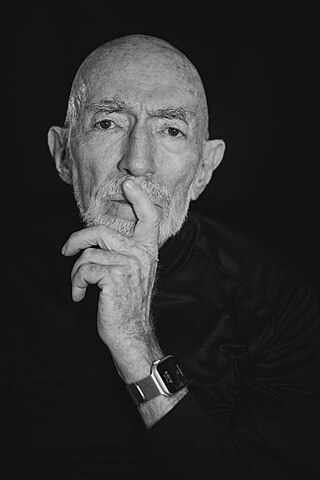
Kip Stephen Thorne is an American theoretical physicist and writer known for his contributions in gravitational physics and astrophysics. Along with Rainer Weiss and Barry C. Barish, he was awarded the 2017 Nobel Prize in Physics for his contributions to the LIGO detector and the observation of gravitational waves.
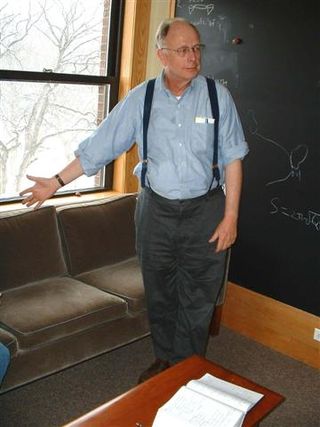
James Burkett Hartle was an American theoretical physicist. He joined the faculty of the University of California, Santa Barbara in 1966, and was a member of the external faculty of the Santa Fe Institute. Hartle is known for his work in general relativity, astrophysics, and interpretation of quantum mechanics.

The Max Planck Institute for Gravitational Physics is a Max Planck Institute whose research is aimed at investigating Einstein's theory of relativity and beyond: Mathematics, quantum gravity, astrophysical relativity, and gravitational-wave astronomy. The institute was founded in 1995 and is located in the Potsdam Science Park in Golm, Potsdam and in Hannover where it closely collaborates with the Leibniz University Hannover. Both the Potsdam and the Hannover parts of the institute are organized in three research departments and host a number of independent research groups.

Gabriele Veneziano is an Italian theoretical physicist widely considered the father of string theory. He has conducted most of his scientific activities at CERN in Geneva, Switzerland, and held the Chair of Elementary Particles, Gravitation and Cosmology at the Collège de France in Paris from 2004 to 2013, until the age of retirement there.
Martin Bojowald is a German physicist who now works on the faculty of the Penn State Physics Department, where he is a member of the Institute for Gravitation and the Cosmos. Prior to joining Penn State he spent several years at the Max Planck Institute for Gravitational Physics in Potsdam, Germany. He works on loop quantum gravity and physical cosmology and is credited with establishing the sub-field of loop quantum cosmology.

Thanu Padmanabhan was an Indian theoretical physicist and cosmologist whose research spanned a wide variety of topics in gravitation, structure formation in the universe and quantum gravity. He published nearly 300 papers and reviews in international journals and ten books in these areas. He made several contributions related to the analysis and modelling of dark energy in the universe and the interpretation of gravity as an emergent phenomenon. He was a Distinguished Professor at the Inter-University Centre for Astronomy and Astrophysics (IUCAA) at Pune, India.
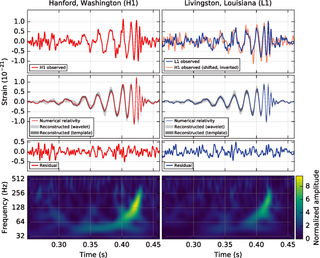
Gravitational-wave astronomy is a subfield of astronomy concerned with the detection and study of gravitational waves emitted by astrophysical sources.
Sergio Ferrara is an Italian physicist working on theoretical physics of elementary particles and mathematical physics. He is renowned for the discovery of theories introducing supersymmetry as a symmetry of elementary particles and of supergravity, the first significant extension of Einstein's general relativity, based on the principle of "local supersymmetry". He is an emeritus staff member at CERN and a professor emeritus at the University of California, Los Angeles.

Jürgen Ehlers was a German physicist who contributed to the understanding of Albert Einstein's theory of general relativity. From graduate and postgraduate work in Pascual Jordan's relativity research group at Hamburg University, he held various posts as a lecturer and, later, as a professor before joining the Max Planck Institute for Astrophysics in Munich as a director. In 1995, he became the founding director of the newly created Max Planck Institute for Gravitational Physics in Potsdam, Germany.
Bernard F. Schutz FInstP FLSW is an American and naturalised British physicist. He is well known for his research in Einstein's theory of general relativity, especially for his contributions to the detection of gravitational waves, and for his textbooks. Schutz is a Fellow of the Royal Society and a Member of the US National Academy of Sciences. He is a professor of physics and astronomy at Cardiff University, and was a founding director of the Max Planck Institute for Gravitational Physics in Potsdam, Germany, where he led the Astrophysical Relativity division from 1995 to 2014. Schutz was a founder and principal investigator of the GEO gravitational wave collaboration, which became part of the LIGO Scientific Collaboration (LSC). Schutz was also one of the initiators of the proposal for the space-borne gravitational wave detector LISA, and he coordinated the European planning for its data analysis until the mission was adopted by ESA in 2016. Schutz conceived and in 1998 began publishing from the AEI the online open access (OA) review journal Living Reviews in Relativity, which for many years has been the highest-impact OA journal in the world, as measured by Clarivate.

Alessandra Buonanno is an Italian-American theoretical physicist and director at the Max Planck Institute for Gravitational Physics in Potsdam. She is the head of the "Astrophysical and Cosmological Relativity" department. She holds a research professorship at the University of Maryland, College Park, and honorary professorships at the Humboldt University in Berlin, and the University of Potsdam. She is a leading member of the LIGO Scientific Collaboration, which observed gravitational waves from a binary black-hole merger in 2015.
Sergei D. Odintsov is a Russian astrophysicist active in the fields of cosmology, quantum field theory and quantum gravity. Odintsov is an ICREA Research Professor at the Institut de Ciències de l'Espai (Barcelona) since 2003. He also collaborates as group leader at research projects of the Tomsk State Pedagogical University. He is editor-in-chief of Symmetry, and is a member of the editorial boards of Gravitation and Cosmology, International Journal of Geometric Methods in Modern Physics, International Journal of Modern Physics D, Journal of Gravity, Universe, and the Tomsk State Pedagogical University Bulletin. Odintsov also is an advisory panel member of Classical and Quantum Gravity.
Mauro Francaviglia was an Italian mathematician.
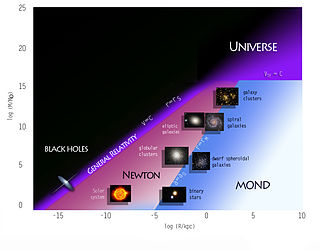
Extended theories of gravity are alternative theories of gravity developed from the exact starting points investigated first by Albert Einstein and Hilbert. These are theories describing gravity, which are metric theory, "a linear connection" or related affine theories, or metric-affine gravitation theory. Rather than trying to discover correct calculations for the matter side of the Einstein field equations, it is instead proposed to change the gravitational side of the equation.
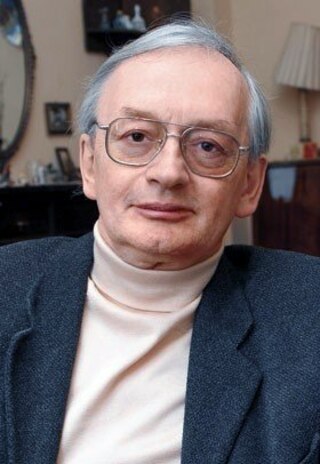
Alexei Alexandrovich Starobinsky was a Soviet and Russian theoretical physicist and cosmologist. He was a pioneer of the theory of cosmic inflation, for which he received the 2014 Kavli Prize in Astrophysics together with Alan Guth and Andrei Linde.

Augusto Sagnotti is an Italian theoretical physicist at Scuola Normale.

Pankaj S. Joshi is an Indian astrophysicist and cosmologist whose research is mainly focused on areas of gravitational collapse and spacetime singularity. He has published more than 225 research papers in national and international journals, and books and monographs on the subject. Currently, he is a Distinguished Professor of Physics, and founding director of the International Center for Space and Cosmology at Ahmedabad University.

C. S. Unnikrishnan is an Indian physicist and professor known for his contributions in multiple areas of experimental and theoretical physics. He has been a professor at the Tata Institute of Fundamental Research Mumbai and is currently a professor in the School of Quantum Technology at the Defence Institute of Advanced Technology in Pune. He has made significant contributions in foundational issues in gravity and quantum physics and has published over 250 research papers and articles. Unnikrishnan is also a key member of the LIGO-India project and a member of the global LIGO Scientific Collaboration
References
- ↑ "SIGRAV- Società Italiana di Relatività Generale e Fisica della Gravitazione" . Retrieved 7 April 2023.
- ↑ "The Amaldi Medals" . Retrieved 6 April 2023.
- ↑ "The SIGRAV Prizes". Archived from the original on 7 February 2023. Retrieved 6 April 2023.